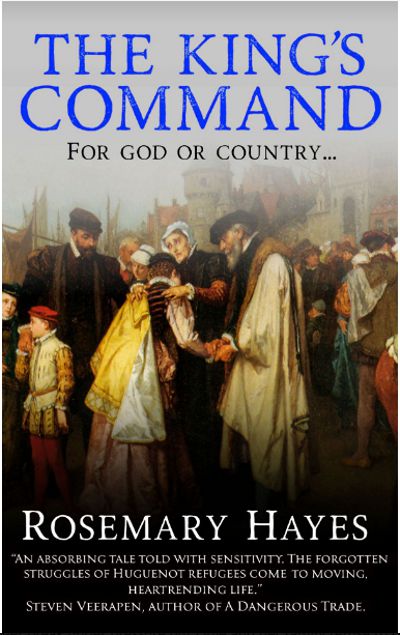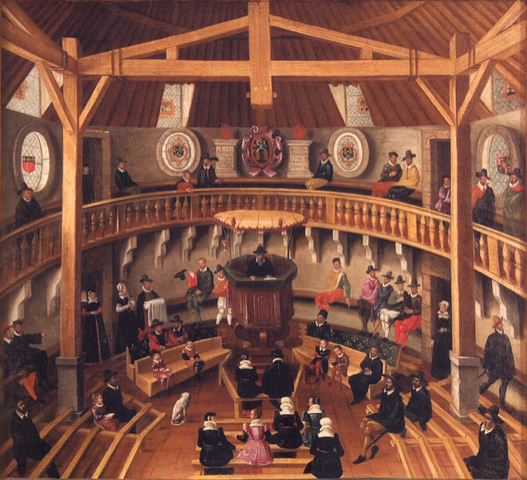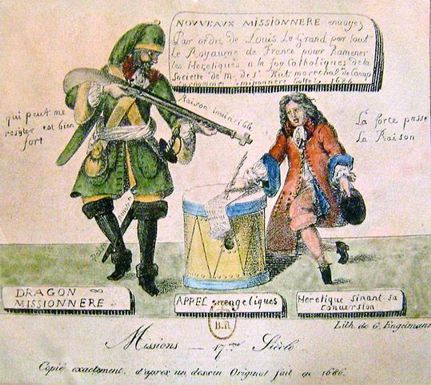
16 year old Lidie Brunier has everything; looks, wealth, health and a charming suitor but there are dark clouds on the horizon. Lidie and her family are committed Huguenots and Louis XIV has sworn to stamp out this ‘false religion’ and make France a wholly Catholic country. Gradually Lidie’s comfortable life starts to disintegrate as Huguenots are stripped of all rights and the King sends his brutal soldiers into their homes to force them to become Catholics. Others around her break under pressure but Lidie and her family refuse to convert. With spies everywhere and the ever present threat of violence, they struggle on. Then a shocking betrayal forces Lidie’s hand and her only option is to try and flee the country. A decision that brings unimaginable hardship, terror and tragedy and changes her life for ever.

The Siege of La Rochelle – background and aftermath
The siege of La Rochelle began in 1627 and lasted 14 months. The siege was a pivotal event during the rebellion of the French Protestants (the Huguenots) against the French Catholics during the reign of King Louis XIII. La Rochelle was a large seaport and the Huguenots’ most important stronghold and, although revolt continued until 1629, its loss effectively put an end to Huguenot resistance.

Both sides in the conflict had help from abroad; royalist France from the Spanish and the Huguenots from the English. In 1627, Charles I of England sent the Duke of Buckingham to support the Huguenot revolt but Buckingham could not overcome the royalist garrison there and had to retreat. The French royalist army constructed fortifications close to La Rochelle, and Cardinal Richelieu, King Louis’s chief minister, oversaw the construction of a huge sea wall to blockade the channel leading to the city, preventing English access to it from the sea.
Despite famine and disease, La Rochelle held out, but finally surrendered on 28th October 1628. It was a complete victory for King Louis XIII and the Catholics. The Catholics losses were negligible compared to those of the Huguenots and the English. It is estimated that the Huguenots lost around 22,000 and Buckingham 5,000.
Background
To understand the deep division between Catholics and Protestants during these turbulent times in France, we have to go back much further. In the early 16th century, the reformist ideas of John Calvin and Martin Luther spread through France and many embraced their new Protestant doctrines. These French Reformists became known as the Huguenots. They believed that the Bible alone gave divine guidance, they rejected the authority of the Pope and the priesthood and they argued for separation of church and state.
All this directly challenged the authority of the Catholic church and led to bitter division between Catholics and Protestants, leading to the Wars of Religion which raged in France from 1562 until 1598. Hatred ran deep, armies were raised and atrocities committed by both sides.

These wars were finally brought to an end through the actions of King Henry IV. As a Huguenot, Henry was involved in the Wars of Religion and, while King of Navarre, led Protestant forces against the French royal army. When he succeeded to the French throne in 1589, he at first kept the Protestant faith – the only French king to do so – but had to fight against the powerful Catholic League, which denied that he could wear the French crown as a Protestant. After several years of stalemate, he converted to Catholicism, reportedly saying “Paris is well worth a mass”!
Henry was a pragmatic politician and he promulgated the Edict of Nantes (1598) which granted official tolerance to Protestantism, thereby effectively ending the Wars of Religion and, for eighty years or so, the Huguenots thrived.
While the Edict of Nantes brought religious peace to France, some hard line Catholics and Huguenots remained dissatisfied and in 1610 Henry was assassinated by a Catholic zealot. Henry was succeeded by his son Louis XIII.
As we have seen, Louis XIII and his Chief Minister, Cardinal Richlieu, were not at all tolerant of the Huguenots. They abhorred their growing influence and attacked their strongholds, including the vital port of La Rochelle.
Aftermath
After the capitulation of La Rochelle, in June 1629, the Grace of Alais was signed. Although this reaffirmed the Edict of Nantes, it ordered that the Huguenot military organisation should be broken up and Huguenot fortresses destroyed.
So, although the Huguenots continued to be allowed to practise their faith, their trades and their professions, their position was considerably weakened by having no fortifications and no army.
When Louis XIII’s son, Louis IV, finally took control of his kingdom in 1661, he quickly set about reforming France according to his own vision.
His vision included making France a wholly Catholic country. His mantra was ‘One realm, one religion, one King’ and he swore to wipe out the ‘false religion’ of Protestantism once and for all.
Many Huguenots could see the way the wind was blowing and quietly left France to find refuge in Protestant countries.
In France, the rights of Huguenots continued to be systematically eroded by Louis and his advisers and the Edict of Nantes, which had protected them for so long, was finally revoked in 1685. At the time of the revocation, Huguenot pastors were given two weeks to leave the country or face death. However, their congregations were forbidden from leaving because Louis did not want to lose the skills of these hard working and successful people.

Pressure continued to mount and Huguenots’ lives became impossible if they continued to be loyal to their faith. Unless they converted to Catholicism, they would forfeit their property, be unable to practise their professions or trades and their children would be forcibly removed from them to be brought up as Catholics. They were banned from holding gatherings, even in private, and their temples were destroyed.
In many places, on the King’s orders, brutal soldiers were sent in to force households to convert and thousands did, to save their skins.

Some held out and suffered terribly, others tried to flee the country and were caught and punished, the men sent to row in the galleys in the Mediterranean (a death sentence) or executed, the women imprisoned and the children sent to be brought up in Catholic institutions.
There are stories of escape where fleeing Huguenots managed to elude their pursuers and make their way to other countries, but also horrific accounts of greedy sea captains taking money from them and then tossing them overboard, of tortures inflicted on those who refused to convert and of refugees hiding on board ships having noxious gas fed into their hiding places. There were plenty of financial rewards offered to those betraying Huguenots and to soldiers finding stowaways, with spies and informers everywhere.
Little wonder, then, that France was emptied of some of its most skilled citizens during these unsettled times. The Protestant countries to which the Huguenots fled were hugely enriched by their presence. Doctors, lawyers, weavers, gold and silversmiths, clockmakers, lace makers, shoe makers, jewellers, glove makers, book binders, perfumers. These folk passed on their skills to those who gave them refuge and became valued citizens of their adopted countries.
My own ancestors were a prosperous Huguenot family from Gascony and for the last two years I have been researching what happened to them and how they escaped to London in 1692. My book ‘The King’s Command’ is very loosely based on their experience.
This title is available to read with #KindleUnlimited.
Universal Link: https://books2read.com/u/bW6zGG
Amazon UK: https://www.amazon.co.uk/dp/B0CB4RH68S
Amazon US: https://www.amazon.com/Kings-Command-God-Country-ebook/dp/B0CB4RH68S/
Amazon AU: https://www.amazon.com.au/Kings-Command-God-Country-ebook/dp/B0CB4RH68S/
Amazon CA: https://www.amazon.ca/Kings-Command-God-Country-ebook/dp/B0CB4RH68S/
Meet Rosemary Hayes

Rosemary Hayes has written over fifty books for children and young adults. She writes in different genres, from edgy teenage fiction (The Mark), historical fiction (The Blue Eyed Aborigine and Forgotten Footprints), middle grade fantasy (Loose Connections, The Stonekeeper’s Child and Break Out) to chapter books for early readers and texts for picture books. Many of her books have won or been shortlisted for awards and several have been translated into different languages.
Rosemary has travelled widely but now lives in South Cambridgeshire. She has a background in publishing, having worked for Cambridge University Press before setting up her own company Anglia Young Books which she ran for some years. She has been a reader for a well-known authors’ advisory service and runs creative writing workshops for both children and adults.
Rosemary has recently turned her hand to adult fiction and her historical novel ‘The King’s Command’ is about the terror and tragedy suffered by the French Huguenots during the reign of Louis XIV.
Connect with Rosemary
Website: https://www.rosemaryhayes.co.uk
Twitter: https://twitter.com/HayesRosemary
Amazon Author Page: https://www.amazon.co.uk/Rosemary-Hayes/e/B00NAPAPZC
Goodreads: https://www.goodreads.com/author/show/80106.Rosemary_Hayes